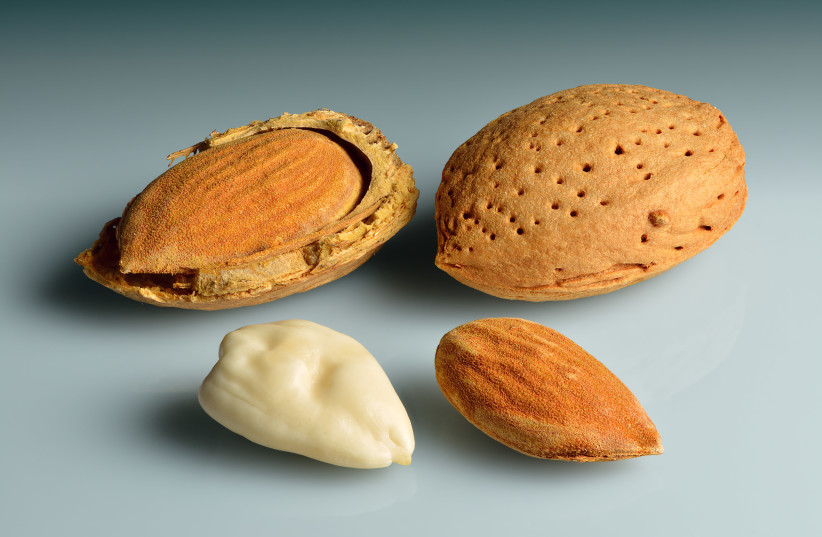Eating almonds daily can boost your recovery after strenuous activity
In a controlled trial researchers found that daily consumption of almonds leads to a change in metabolism and helps to recover faster.
For those who exercise regularly, eating almonds every day immediately increases the level of beneficial fats in their blood and boosts muscle recovery among “weekend warriors” who participate in physically strenuous activity only on weekends or part-time.
A randomized controlled trial published in the journal Frontiers in Nutrition under the title “Almond intake alters the acute plasma dihydroxy-octadecenoic acid (DiHOME) response to eccentric exercise” showed that female and male participants who ate 57 grams of almonds daily for one month had more of the beneficial fat 12,13-dihydroxy-9Z-octadecenoic acid (12,13-DiHOME) in their blood right after a session of intense exercise than control participants.
This molecule, a so-called oxylipin (oxidized fat) is synthesized from linoleic acid by brown fat tissue, and has a beneficial effect on metabolic health and energy regulation.
Prof. David Nieman, director of the Appalachian State University Human Performance Laboratory at the North Carolina Research Campus, said that not only did those who ate almonds have more beneficial fat in their blood immediately after exercising than control volunteers but “they also reported feeling less fatigue and tension, better leg-back strength and decreased muscle damage after exercise” than those who didn’t eat almonds.
What'll Happen If You Eat 4 Almonds Every Day
The trial
The clinical trial involved 38 men and 26 women between the ages of 30 and 65 who didn’t engage in regular weight training. About half were randomized to the almond-diet group and the other half to the control group, who daily ate a calorie-matched cereal bar.

The researchers took blood and urine samples before and after the four-week period of dietary supplementation. Performance measures included a 30-second anaerobic test, a 50-meter shuttle run test and vertical jump, bench press and leg-back strength exercises. Additional blood and urine samples were taken immediately after this 90-minute session of exercise and daily for four days afterward.
After each blood draw, the participants filled out the “Profile of Mood States” (POMS) questionnaire to quantify their mental state and rated their delayed onset muscle soreness – pain and stiffness felt after unaccustomed or strenuous exercise – on a 10-interval scale.
As expected, the 90-minute exercise led to an increase in the volunteers’ self-reported feeling of muscle damage and muscle soreness, as well as an increased POMS score, indicating self-reported decreased vigor and increased fatigue, anxiety and depression.
Nieman and colleagues concluded that daily consumption of almonds leads to a change in metabolism, down-regulating inflammation and oxidative stress from exercise and enabling the body to recover faster.
“We conclude that almonds provide a unique and complex nutrient and polyphenol mixture that may support metabolic recovery from stressful levels of exercise. Almonds have high amounts of protein, healthy types of fats, vitamin E, minerals and fiber – and the brown skin of almonds contains polyphenols that end up in the large intestine and help control inflammation and oxidative stress,” Nieman concluded.


No comments:
Post a Comment
Stick to the subject, NO religion, or Party politics